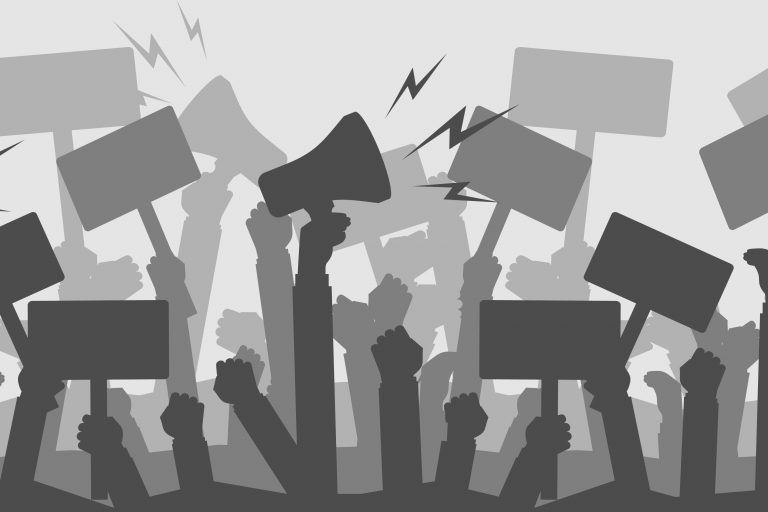Health

Makovsky
Thursday, January 30, 2020As we near the end of January, the sense of urgency and optimism associated with the New Year has mostly disappeared. As far as New Year’s resolutions go, the fourth week of January might as well be the last week of June. By this time, most of us have fallen back into the same daily routines we established last year.
The resolutions we vow to make each year typically focus on areas in our lives that we feel need improvement. Despite having the best of intentions, only 8% of people actually manage to follow through and accomplish their goals, according to U.S. News & World Report.
One reason sticking to resolutions can be so challenging is the fact that we’re our own worst enemy, expecting immediate change to right all our wrongs overnight. The bar is simply set too high. To avoid the crushing sense of defeat yet again, we recommend setting yourself up for success by establishing realistic goals that can be easily achieved by making small, impactful changes. You can thank us in December.
Here are a few tips for impactful change on your path to health and wellness:

Prioritize restful sleep[1]
While the quantity of sleep is important, the quality of your sleep is what really matters. Sleep quality directly impacts your mental and physical health, meaning a bad night’s sleep can result in decreased productivity, a weakened immune system and an increase in stress hormones.
A simple way to improve the quality of your sleep is to establish a consistent sleep schedule. While this is easier said than done, making a conscious effort to go to sleep and wake up around the same time every day will allow your body and brain to follow circadian rhythms and you’ll soon be conditioned to this new schedule. Another tip – turn off your phone. The light emitted by our cell phones can adversely affect sleep and disrupt your body’s natural sleep cycle.
Drink. More. Water.[2]
Nobody needs to be told that staying hydrated is absolutely essential to your health, but sometimes it can be hard to prioritize drinking enough water every day. A simple way to ensure you’re staying hydrated is to use a reusable water bottle (added bonus of reducing plastic waste), fill it up every morning and aim to finish at least four full bottles by the end of the day.
If you prefer a beverage with more flavor, there are several additional benefits of adding fruits (lemon, cucumber, strawberries, etc.) to your water for infused flavor. The benefits of staying well-hydrated are endless. Some highlights include: flushing toxins out of your body, improving skin health and appearance and aiding in weight loss… who doesn’t want those perks?
Walk it out[3]
Another small yet impactful change you can make in your daily routine is to increase your physical activity. While it can be difficult for people to carve out 30+ minutes a day to dedicate to a full-body workout, a simple way to increase activity is to swap out the elevator and opt for the stairs in your office building or apartment. No stairs? Walk to work if you can or park further away from your office. Finally, if you are able, leave your office on breaks to take short walks and get some fresh air, even if only for 10 – 15 minutes.

Put your phone down [4]
Rather than spending your entire commute endlessly scrolling through social feeds, playing Candy Crush or checking email, pick up that new book you’ve been meaning to read. Since you likely spend most of your workday on a computer, cutting back on screen time outside of the office is bound to be beneficial.
Something to keep in mind as you struggle to stay off your phone – our cell phones carry 10 times more bacteria than most toilet seats, according to a study done at University of Arizona.
Mental health is just as important as physical health [5]
Just because it doesn’t hurt doesn’t mean it isn’t broken. Not all health issues are necessarily physical and mental health should not be ignored. If you’re overly stressed, anxious or depressed, it can take a toll not only on your ability to function on a day-to-day basis but can adversely impact your physical health as well. It’s easy to get caught up in life’s everyday stresses but recognizing when you’re feeling overwhelmed and need to take a step back is vital.
Actively incorporating mindfulness and/or meditation practices into your daily routine even if only for 10 minutes a day. Not sure where to begin? We suggest checking out a few apps, like Headspace or Aura, which provide guided meditation practices and daily affirmations.
While none of these changes guarantee overnight results, each small adjustment you make is a step in the right direction. Remember that it takes up to 60 days to form or break a habit, so it’s important to be patient and kind to yourself.
[1] Mawer, R. (2018, November 2). 17 Proven Tips to Sleep Better at Night. Retrieved from https://www.healthline.com/nutrition/17-tips-to-sleep-better
[2] McIntosh, J. (2018, July 16). 15 benefits of drinking water and other water facts. Retrieved from https://www.medicalnewstoday.com/articles/290814.php
[3] Steinhilber, B. (2018, May 4). Why walking is the most underrated form of exercise. Retrieved from https://www.nbcnews.com/better/health/why-walking-most-underrated-form-exercise-ncna797271
[4] Hampton, A. (2018, March 30). 3 Reasons You Should Put Your Phone Down. Retrieved from https://thriveglobal.com/stories/3-reasons-to-put-your-phone-down/
[5] Physical health and mental health. (n.d.). Retrieved from https://www.mentalhealth.org.uk/a-to-z/p/physical-health-and-mental-health











